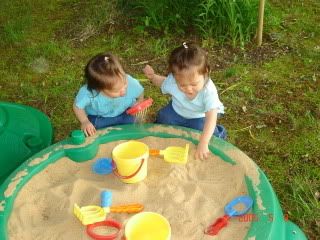Play Is Child's Work

As I have observed since before, many parents tend to ask their children what they did in school. Since children would most certainly answer that they just played, these parents would probably blurt out : "I send you to school not to play but to study!!"
Many parents do not realise that children do their tasks through play. As Weiser, M.G., an educational psychologist pointed out, "Play is child's work."
As proven through researches, there are many values of play. There is an enormous benefits of play as it include the whole child-- cognitive, social, emotional and physical aspects.
Play is a natural avenue for the expression of creativity. Dansky and Silverman (1973,1974) conducted experimental studies and found a caussal relation between play and creativity.
One may be amazed on how the children or the children in my centre in particular, make different structures like aeroplanes, robots and or houses using lego pieces. How they used their problem skills to produce an artistic creation is a manifestation that children are indeed creative by nature and that through play this creativity is enhanced.
Play also encourages social interaction among children as they learn how to deal with the feelings and attitudes of their playmates. In addition, it is worth noting that friendship is develop through play. How can one imagine a person like my eldest krizelle who up to now is in contact with her friends during grade school days? The different play they had in the vast compound of Assumption Antipolo sealed their friendship.
Through play, children are able to express their thoughts and feelings too. A child can express unacceptable feelings in acceptable way. Take my daughter Marielle. She used to include narratives in her play. One time I overheard her say, "This bad man asked the small girl to stop riding her bike." It was only then, after my probing, that I learnt that her bike was forcefully taken from her. She expressed her bad feeling in an acceptable way through narrative play.
Play also let children experiment on their own bodies and see how they function best. It makes them confident and secure. Like my twin grand daughters. I remember that time when Kyllenne & Darrielle walked so fast from me when they learnt that they could really walk fast. They smiled at me as if saying," See, we can do it without you holding our hands!"
With the proven results of the relevance of play among children, we should not restrict or limit their playtime. We must take advantage of this so called "natural learning."












